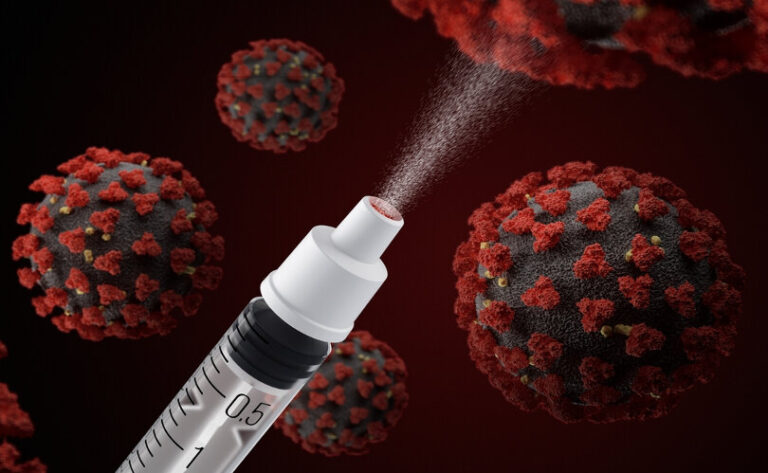She Died After Being Refused Ivermectin. Now, Her Family Is Speaking Out

Family wonders whether their mother, wife would still be alive if doctors gave her ivermectin.
Brenda Downs was on her deathbed.
Mrs. Downs, 64, became ill with COVID-19 while on vacation. After returning home, she went to the local emergency room for treatment. When her condition worsened, she was transferred to a larger facility in Ohio.
Mrs. Downs, on the other hand, continued to deteriorate despite a federally recommended treatment regimen that included remdesivir.
Mrs. Downs’ family asked doctors to try ivermectin, an anti-malarial that has had some success against COVID-19, on the same day she was put on a ventilator. Because the treatment plan was failing, relatives decided it was time to try something new.
The hospital declined. A clinical ethicist there mentioned how the United States Food and Drug Administration (FDA) advised people not to use ivermectin against COVID-19. Mrs. Downs could face “significant harm” if she was given ivermectin, according to the ethicist.
“This may make the family upset,” he wrote in notes obtained by The Epoch Times.
Mrs. Downs’ husband and daughters, on the other hand, were not giving up. They filed a lawsuit against the hospital to force it to either administer ivermectin or allow an outside doctor to do so.
Mrs. Downs should be able to receive the drug, according to a local doctor who reviewed her case. Based on his research into ivermectin, he concluded that there was “very little downside” to trying the drug, whether or not it worked.
On August 19, 2021, a settlement was reached. The settlement stated that the hospital would administer ivermectin, but that it would be subject to “the treating physician(s) professional judgement and discretion, as well as the applicable standard of care.”
Mrs. Downs was never given ivermectin. On September 2, 2021, she died in the hospital.
If she had received the drug, “I believe it would have set some kind of precedent, so they did everything they could to make sure she was never going to get it,” Mrs. Downs’s husband, Donald Downs, told The Epoch Times. “If we could’ve gotten it to her sooner, maybe things would’ve been different.”

A doctor who on July 28, 2021, saw Mrs. Downs said she was “not ill-appearing or toxic-appearing,” nor “in acute distress. Mrs. Downs did test positive for COVID-19, he wrote in notes reviewed by The Epoch Times. The doctor sent her home with an inhaler in stable condition.
Five days later, Mrs. Downs went back to the same hospital, Hocking Valley Community Hospital, reporting diarrhea, nausea, cough, fever, and loss of taste and smell.
Dr. John Ireton, the doctor at Hocking Valley, described plans to start Mrs. Downs on the anti-inflammatory dexamethasone. He did not plan to administer remdesivir due to “recent poor efficacy data,” he wrote in notes from the Aug. 2, 2021, encounter.
Even a day later, Mrs. Downs was in relatively good condition despite experiencing some symptoms, according to additional notes. The patient was “pleasant and cooperative” while appearing “moderately ill,” Dr. Ireton wrote.
But the patient’s inflammatory markers started trending upward, and she soon required oxygen.
Mrs. Downs was transferred to Doctors Hospital, the bigger facility, on Aug. 5, 2021, in part because the facility had “remdesivir and other COVID-19 treatments unavailable at this facility,” Dr. Ireton wrote in discharge notes.
Remdesivir is an antiviral cleared by the FDA for treating COVID-19.
Placed on Ventilator
Mrs. Downs was admitted to the intensive care unit at Doctors Hospital the same day, with conditions including acute respiratory failure and a slow heartbeat, the doctors there said.
Other symptoms were later noted, including acute kidney injury. It was “unknown” whether those conditions were present at admission, the doctors said in notes reviewed by The Epoch Times.
Doctors after admission started Mrs. Downs on a course of remdesivir, which some researchers have said is linked to kidney injury. The doctors also continued the dexamethasone and added various vitamins and other drugs, including the monoclonal antibody tocilizumab and vitamin C. Family members say they asked if remdesivir was being administered and were told no.
Doctors used a bilevel positive airway pressure machine to assist Mrs. Downs with breathing. They ended up placing her on a ventilator on Aug. 11, 2021, due to worsening symptoms, despite her telling them she did not want to be intubated. Fentanyl and other drugs were administered.
On the same day as the intubation, the family asked that ivermectin be administered, under the Right to Try Act, as the treatments applied by the hospital weren’t working.
Gavin Enck, a clinical ethicist at OhioHealth, said that the request would have to be rejected because it did not meet the conditions of the act, such as being an investigational drug studied in clinical trials. “Second, the FDA has publicly stated that it neither treats COVID nor benefits the patients; in fact, there are great harms in using ivermectin to treat or prevent COVID-19. As a result, ivermectin is non-beneficial treatment,” Mr. Enck wrote in an analysis dated Aug. 11, 2021, that was reviewed by The Epoch Times.

Ivermectin is an FDA-approved drug, but it is not approved for COVID-19. In the United States, doctors frequently prescribe drugs for unapproved uses. In a warning issued earlier this year, the FDA stated that ivermectin was not approved to treat COVID-19 and that “taking large doses of this drug is dangerous and can cause serious harm.” Since then, the FDA has acknowledged that doctors can prescribe ivermectin for COVID-19, and an appeals court has ruled that the FDA likely exceeded its authority with the warning and similar statements.
Mr. Enck stated that if the family did not agree with the decision, they could take legal action.
“While this may make the family upset, they do have the right to request a transfer,” he wrote in the letter. “While it is extremely unlikely another organization would accept the patient in order to provide ivermectin, they family [sic] can still work on setting up a transfer.”
Mr. Enck did not answer his phone or return a voicemail message. A request for comment from OhioHealth was not returned.
The family requested a meeting with hospital administrators and agreed to sign waivers. They claimed that their attempts were rejected.
Mrs. Downs’ primary care doctor, Dr. Brian Still, was also contacted by family members. He agreed to prescribe ivermectin to Mrs. Downs and wrote a letter saying there was little risk in trying it.
Suit Filed
The family took OhioHealth to court in order to give their loved one a better chance of survival.
Mr. Lorigo, who had previously won similar cases for patients seeking ivermectin, was chosen to represent them.
“Every time he won a case in court, the person who got it lived,” Mrs. Downs’s daughter, Cara Bookman, told The Epoch Times.
On August 16, 2021, the family’s lawyers filed an emergency request for relief in Franklin County court. Attorneys requested an urgent sealed hearing.
The hearing took place on August 18, 2021. The family was not in attendance. According to the family, Judge Serrott called them and stated that the parties were close to reaching an agreement on a confidential settlement that would prohibit the family from discussing the settlement and include a fine if they did.
According to the family, OhioHealth requested a $1 million fine, but Judge Serrott reduced it to $100,000.
Mr. Lorigo, according to the judge, was also impeding the settlement by refusing to sign it. In order to finalize the settlement and get Mrs. Downs the ivermectin, the family offered to fire him.
The family claims the judge then told them Mrs. Downs would be able to receive the medication as soon as they signed the settlement.
The agreement indemnified OhioHealth for the administration of ivermectin and stated that OhioHealth “shall prescribe and administer a 12 (twelve) mg daily oral dose of ivermectin for 4 (four) days” to the patient.
However, it also stated that the prescription and administration were “subject to the [sic] treating physician(s)’ professional judgment and discretion, as well as the applicable standard of care.”
No Ivermectin
After signing the agreement, the family went to the hospital and discovered Mrs. Downs had not received ivermectin. Mrs. Downs was suffering from cognitive issues, according to a nurse, and doctors were concerned that ivermectin would harm her. Several doctors then met with the family and informed them that they would not be administering the drug. The family agreed to a one-day postponement.
Dr. Joseph Gastaldo told the Downs family during the meeting that if ivermectin had been administered earlier, it could have helped Mrs. Downs. However, Dr. Gastaldo later told a local news station that there was “no proven benefit” to using ivermectin against COVID-19 and that it “potentially has toxicities if you take it at a higher dose.”
Additional attempts to obtain the drug for Mrs. Downs were unsuccessful, prompting the family to request that the case be dismissed by Mr. Perry, the local attorney.
“We did not want to be held liable for the $100,000 each [in the] confidentiality agreement knowing that they were still not going to give her the medicine,” Mr. Downs went on to say.
Mrs. Downs passed away on September 2, 2021.
A week later, Judge Serrott dismissed the case.
The family later discovered that they were still bound by the confidentiality agreement. They filed a new action in October 2022 to ensure that they could discuss their ordeal.
Warner Mendenhall, who is now representing the family, told The Epoch Times that the complaint was straightforward. Without a court ruling, the family “would be under the threat” of fines, he said.
OhioHealth filed a countersuit, claiming that the family was bringing a frivolous lawsuit. Sanctions were sought by hospital lawyers.
Nearly a year later, Judge Aveni issued his decision. While confirming that the confidentiality agreement was not in effect, he rejected the family’s request to dismiss the countersuit, stating that the case would be decided later.
The family wishes to inform the public about their encounters with a major hospital and the legal system.
“I don’t know if I could believe it if I hadn’t gone through this,” Mr. Downs, a pastor, told The Epoch Times. “It’s that horrendous.”
They hope that OhioHealth, the doctors there, and Judge Serrott are held accountable for what happened.
“We are seeking justice,” the man said, “so that no other family has to go through what we did.”





